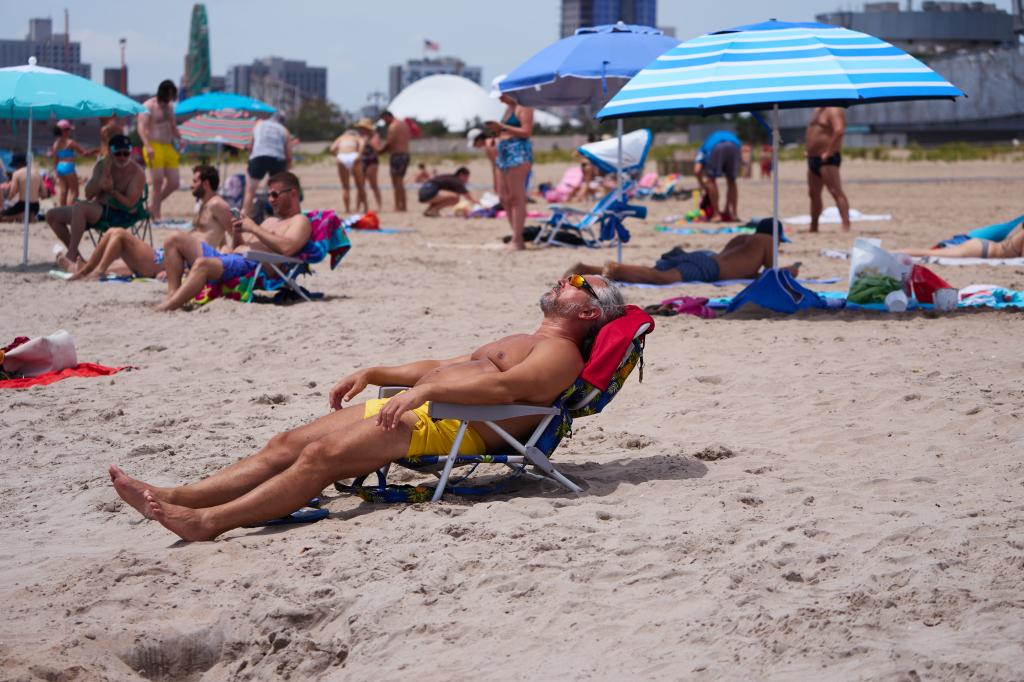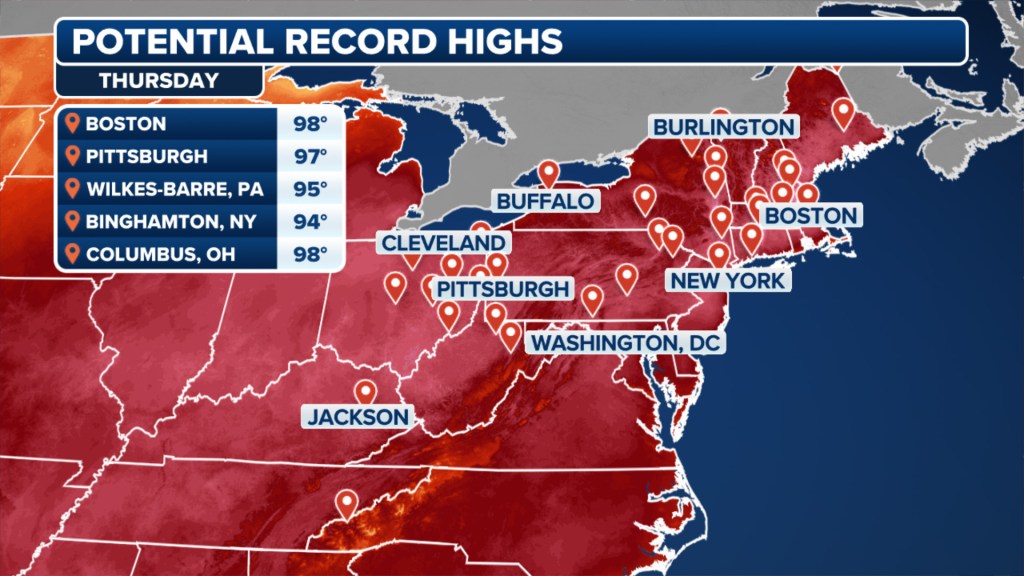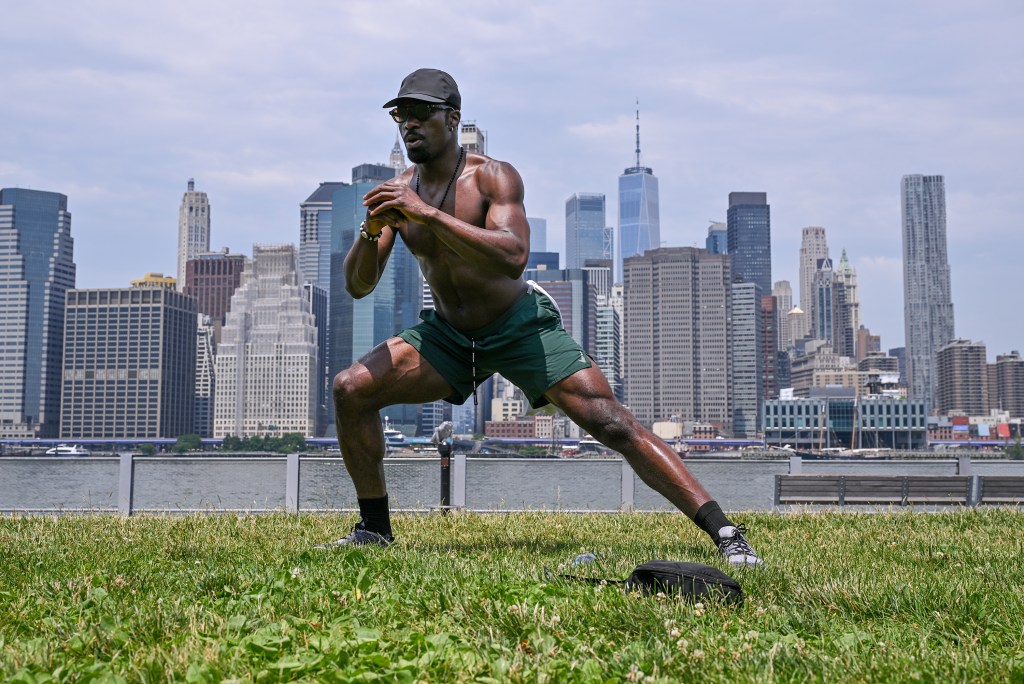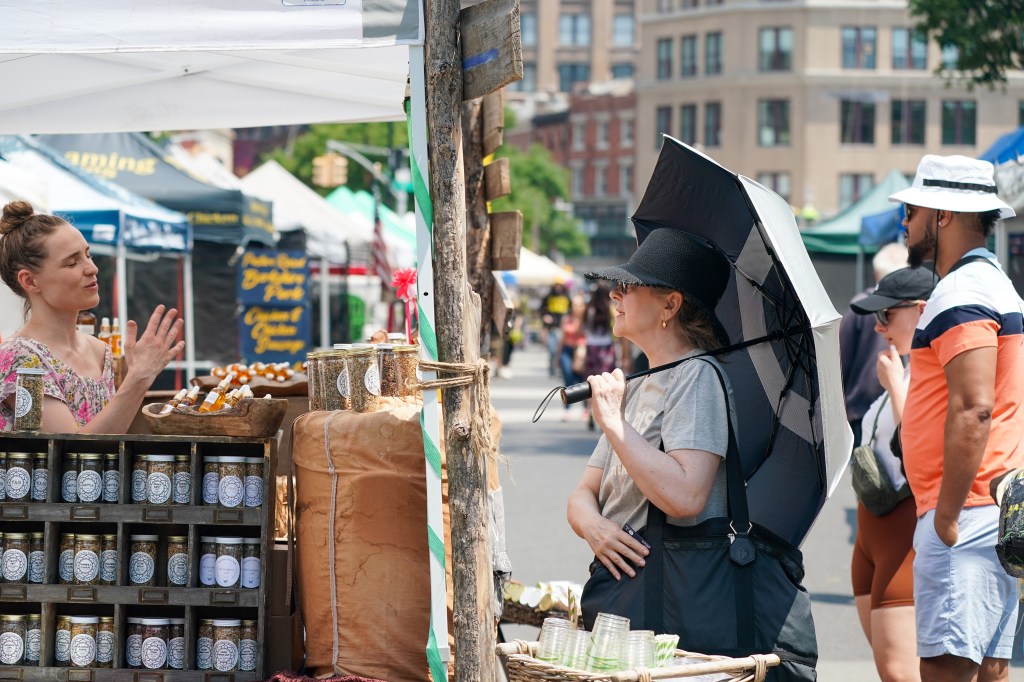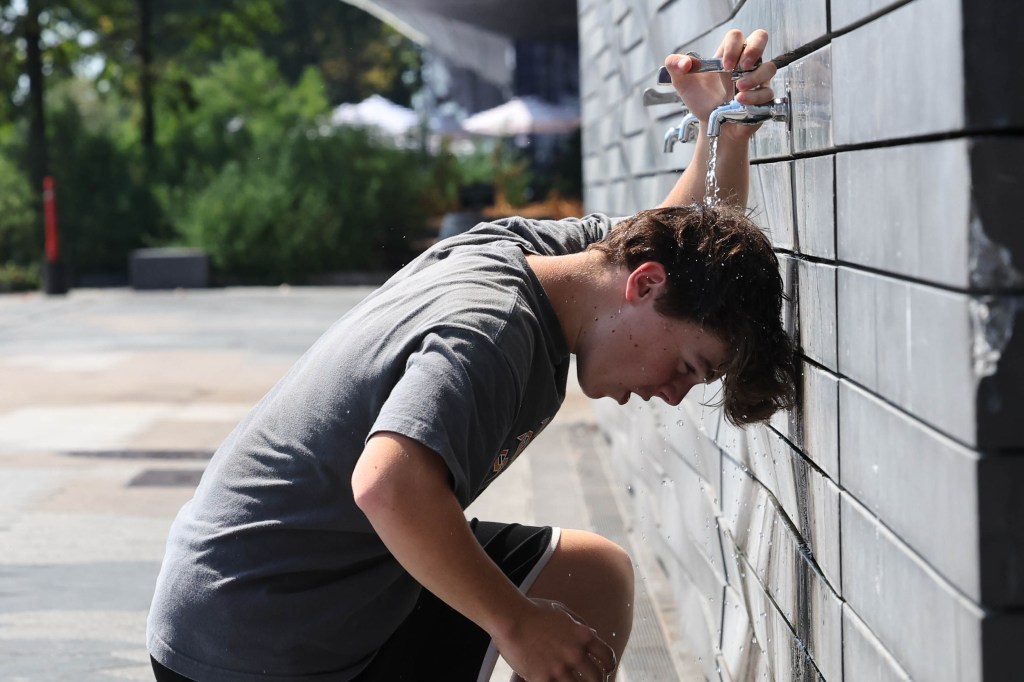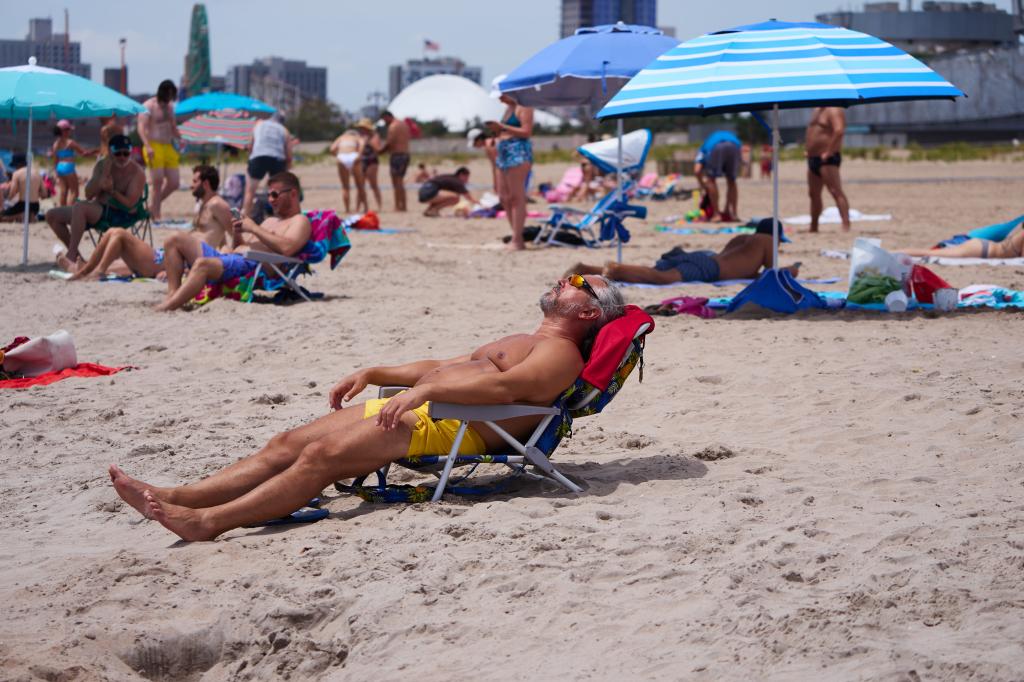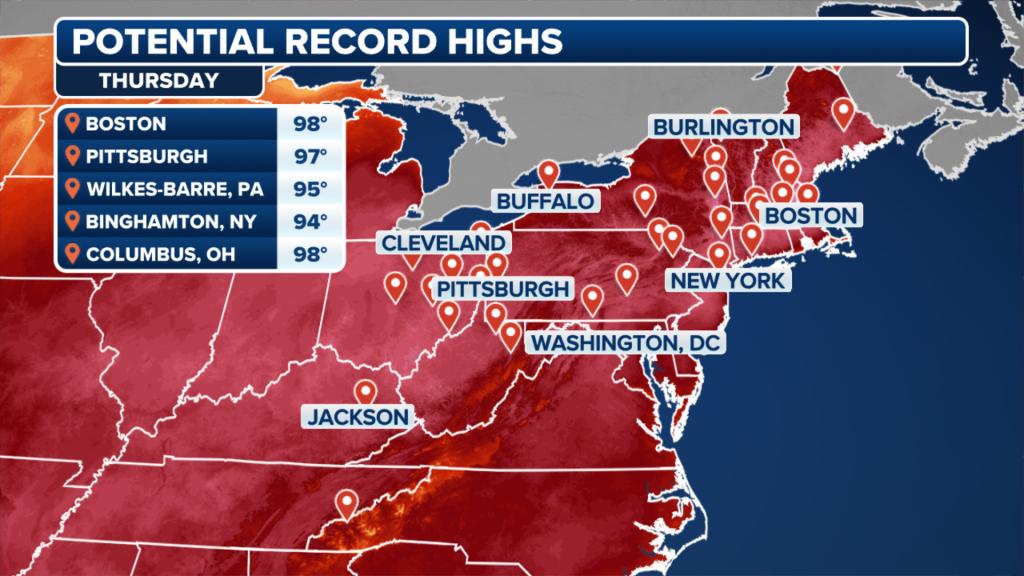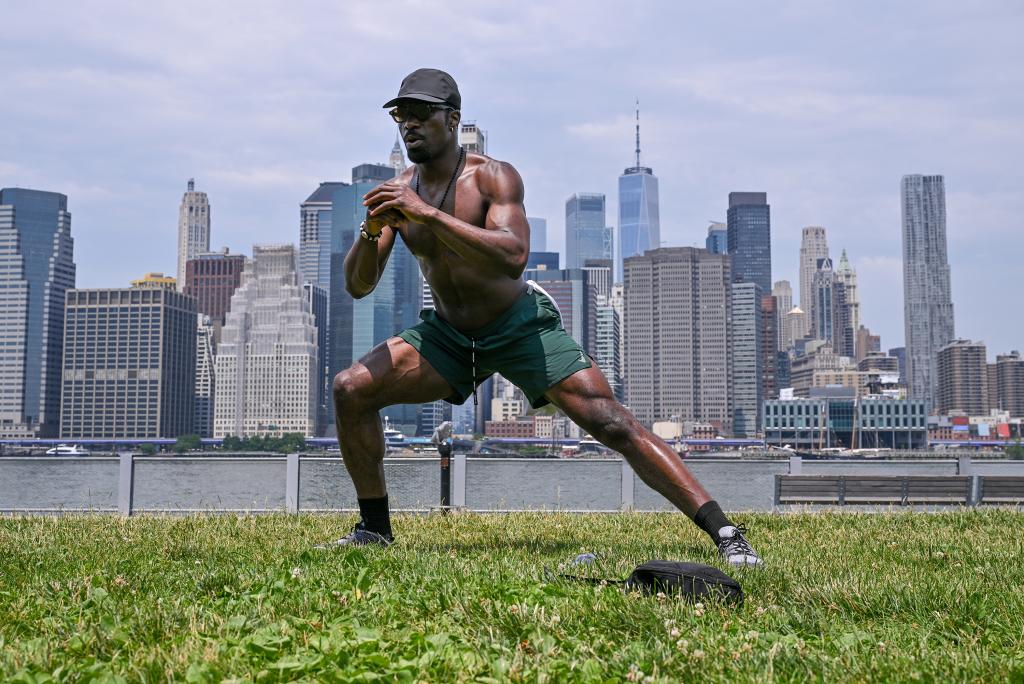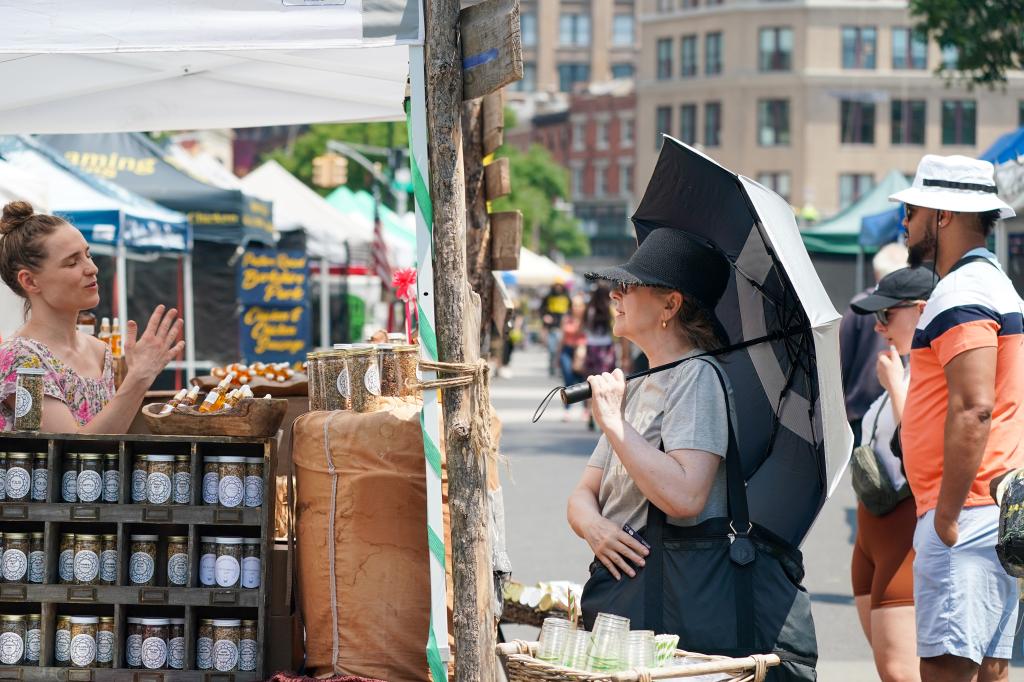Scorching ‘heat dome’ to send NYC temps soaring past 100: Here’s how to stay cool
A ‘heat dome’ will strike the northeast this week, sending Big Apple real-feel temperatures soaring past the mid-90s — and city dwellers should start preparing now for what could be a historic scorcher, experts told The Post.
The torrid weather is expected to roll into New York City around Tuesday, with the mercury rising to about 90 degrees on Tuesday and creeping up from there, according to the AccuWeather forecast.
Temperatures will likely reach their high-water mark on Thursday and Friday — with both days expected to top 95 degrees, AccuWeather said.
But it will likely feel even hotter, with peak heat index values in northern New Jersey, southern Connecticut and New York City expected to hit 100 to 105 degrees, the National Weather Service said in a hazardous weather warning issued Sunday.
“Not only is it going to be hot, it’s going to be stagnant conditions,” FOX Weather meteorologist Steve Bender said. “You’re not going to have any kind of breeze that will cool you off either by the time we get into the middle to latter half of the week.”
The tremendous warmth will be held in what’s known as a “heat dome,” or a hot air mass that develops when a high-pressure system traps the warm air below it, blocking it from rising into the atmosphere, according to New Scientist.
The high-pressure system keeps the skies clear — which, in turn, means lots of sunshine that further warms the already-superheated air, the outlet said.
This dangerous cycle can cause issues for those unprepared for it, according to Frederic Klein, regional communications manager for the American Red Cross and Greater New York.
To combat the deleterious effects, Klein said people should:
- Drink plenty of fluids
- Wear breathable, lightweight clothign
- Apply sunscreen
- Stay indoors during the hottest parts of the day
- Watch out for heat-related illness, especially among the elderly, the young and pregnant women
Klein also said it’s critically important to know the signs of heat exhaustion — and when to call an ambulance if it strikes someone nearby.
Trouble typically begins with heat cramps, which includes muscle pains and spasms in the legs or abdomen, he said.
Heat exhaustion is the next level, and includes heavy sweating, nausea, dizziness, weakness and exhaustion — as well as cool, moist and pale skin.
These conditions can typically be remedied by moving to a cooler spot, drinking water and stretching some, Klein added.
“Keep an eye and call 911 if the person stops drinking water, starts vomiting or starts beginning to lose consciousness,” he said.
Heat stroke is the most serious, and can be fatal if left untreated.
“That’s life-threatening — and that’s when you want to call 911 immediately,” Klein said.
The condition is punctuated by hot, red skin, vomiting and passing out. Victims should be treated by professionals right away.
New York City hasn’t seen a 100-degree day since July 18, 2012, which was during one of the worst heat waves in modern history, Fox said.
Unfortunately, overnight temperatures won’t fall much — meaning the evenings won’t be the escape they usually are, and might induce further heat stress, the network added.
New Yorkers didn’t appear to be too worried Sunday about the rising temperatures — some didn’t even know it was happening at all.
“That sounds wild,” Edens Fleurizard, 26, told The Post after learning about the impending heat wave.
“When it’s hot in general, I personally am inside,” Fleurizard said as he read a book in Flushing’s Kissena Park alongside his girlfriend, Mari.
“And even now when we’re out in the park, she likes to lay in the sun and I’m more of a shade guy. So that doesn’t sound like a great time.”
“We’ll definitely be putting the blinds down as a way to try to reduce some of the heat without necessarily blasting the air conditioning but there’s only so much you can do there.”
Others were more conflicted.
Aspiring nurse Onyinye sat in the Herald Square shade Sunday as she told The Post that there’s “pros and cons” to the summer scorcher.
“I feel like the heat makes everything … you know, intense,” the Connecticut native said. “So it’s hard dealing with that. But it’s really nice when you’re just walking outside. So I love that the heat has that too.”
When it gets too hot, she said she likes to hit the beach.
“I love sitting by the water,” she added.
Some experts worry the excessive heat could hurt the power grid as desperate customers start cranking their air conditioners at the same time.
Klein, of the Red Cross, said New Yorkers can prepare for this by finding their local cooling center ahead of time.
“The city does a pretty good job of pushing out where those cooling centers are — so know where the closest one is going to be,” he said.
“It’s better to be prepared before you go out than to get caught not being prepared after [for example] the power goes out.”








